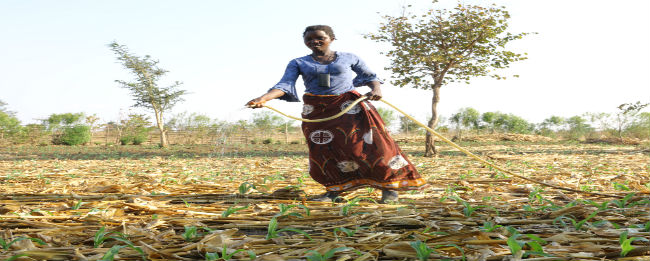The Scottish Government has published its new approach to international development in the paper: Global Citizenship: Scotland’s International Development Strategy.
We’ll be exploring it in detail but, while we know that much depends on how the Strategy is delivered in practice, there appears much to welcome.
In particular, we are pleased by the Scottish Government’s vision for a development programme that “contributes to the fight against global poverty, inequality, injustice and promotes sustainable development”.
As we made clear in our response to the Government’s recent public consultation, aid must always be allocated on the basis of three core purposes: fighting poverty; reducing inequality, particularly gender inequality; and meeting humanitarian need.
We know that when aid is given for other purposes its impact on reducing poverty is rarely lasting.
Good quality aid saves lives and can unlock people’s ability to work their own way out of poverty.
Eleven years after Scotland’s International Development Fund was introduced, it is now a mature and significant tool in the fight against global poverty and will be worth £10 million in 2017-18.
The programme’s development, as Dr Alasdair Allan – the Minister for International Development – outlines in the new Strategy, has been supported by cross-party support in Scotland. We very much hope this continues.
But a little over a year since the Sustainable Development Goals (SDGs), or Global Goals, were agreed at the United Nations – a refresh was needed, and it’s great to see the Goals placed at the heart of this new Strategy.
We look forward to hearing further details about how the Scottish Government will drive this forward whilst ensuring progress in doing so can be transparently measured.
Critically, partnership working is at the heart of the Goals, and the prominence given to this within the Scottish Government’s new Strategy – both with its partner countries and other development actors, including the UK Government’s Department for International Development – is encouraging.
This approach could be further supported by the decision to narrow the number of countries supported – with development programmes in Malawi, Zambia and Rwanda and an additional focus on education in Pakistan.
Just as critical is the commitment in the new Strategy to embed human rights within development work – something Oxfam believes will help to lift people out of poverty.
We also warmly welcome the ongoing commitment to the Climate Justice Fund given the need for more support to countries impacted by climate change is ever more urgent, as shown by the food crisis in Malawi.
The creation of a new Humanitarian Aid Fund also reflects the need for all development actors to respond to the surge in global emergencies, whilst protecting long-term development activities.
The new Strategy strongly recognises that our choices and actions in Scotland – including, in our view, how our companies operate, government policies in areas like energy and trade, the things we buy and the tax we pay – can and often do have repercussions for people and communities around the world.
While the Scottish Government’s commitment to a “do no harm” approach is a step in the right direction, we would like to see a more proactive “do good” policy.
We must ensure every Scottish minister, department, and Parliamentary committee share in the responsibility to contribute to Scotland’s international development objectives.
We hope the Government will now explore and put in place robust mechanisms to achieve this.
Beyond this, global citizenship takes a central place in the new Strategy.
Whilst it is clearly important for the vast majority of aid funding to reach people in the world’s poorest countries, we support investment in global citizenship education here in Scotland.
Children, young people, and adults, need to know how decisions made by people in other parts of the world affect our lives, just as our decisions affect the lives of others.
Global citizenship education in our schools gives pupils an opportunity to think about complex global issues within the safety of the classroom whilst exploring, developing and expressing their values and opinions.
The Strategy outlines three funding streams: Development Assistance, Capacity Strengthening and Investment.
In relation to the latter, Oxfam believes that businesses can make a valuable contribution to poverty reduction if they subscribe to the international standards on aid effectiveness.
But delivery in this area will require significant caution.
The private sector must recognise its actions can undermine, as well as boost, sustainable development.
Ultimately, Scotland’s development impact will be judged on the number of people we move out of poverty, the lives saved and the sustainable development goals we help to meet.
It is therefore essential that in delivering the new Strategy, the Scottish Government – and all those involved in delivering the programme – hold themselves to the principles of transparency and accountability.
Only by maintaining best practice can we hold others to account for their aid quantity and quality.
Scotland must therefore strive for an open, fair and competitive process for applying for funding and commit, as a minimum, to publicly accessible annual reporting.
Doing this would help realise the Scottish Government’s commitment to the Open Government Partnership.
Finally, it is of course critical that sufficient resources are committed to realising the Strategy’s vision whilst delivering effective and responsive grant management and a willingness to innovate and learn.
Scotland’s aid budget remains small but it can continue to provide much needed support to people in some of the world’s poorest countries.
We look forward to working in partnership with the Scottish Government to make sure that happens.
